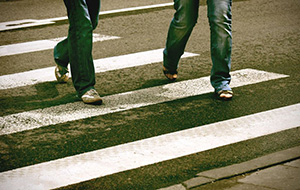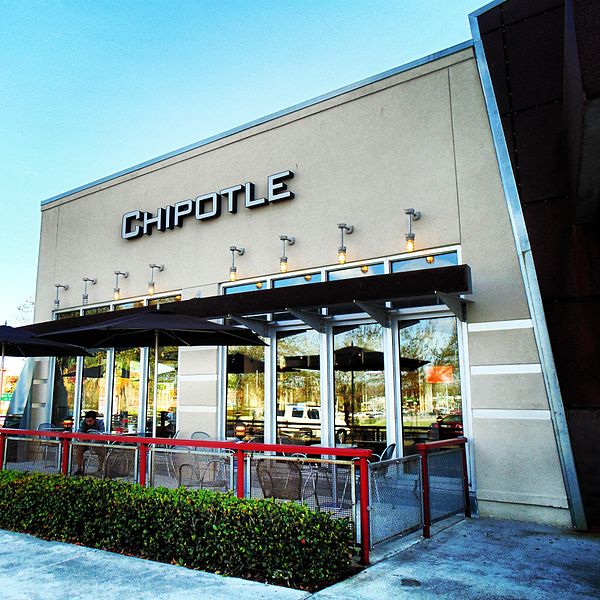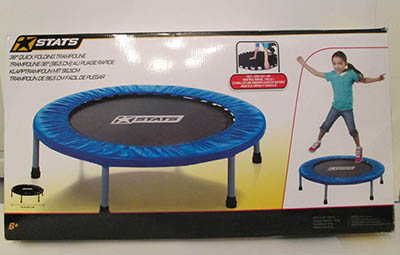Personal Injury
Attorney Marc Breakstone Provides Legal Commentary in Boston Globe Article on Former Student’s Negligence Lawsuit Against Worcester Polytechnic Institute
Attorney Marc Breakstone commented as a legal expert in a Boston Globe article this week on Worcester Polytechnical Institute’s (WPI) response to a negligence lawsuit, brought by a former student who was raped while studying abroad. The college responded that the student was partially responsible.
“It’s a strategy that, frankly, often backfires in trial because the jury gets incensed,” Attorney Breakstone said.
This is a comparative negligence argument. This is traditionally an argument defense lawyers try and make for slip-and-fall cases or other accidents. In these cases, juries are left to assign a percentage of blame on the defendant and the plaintiff. In this case, Attorney Breakstone called the use, “repugnant.”
According to The Boston Globe, the student was raped in Puerto Rico, by a security guard who worked at the apartment building where students lived. The security guard was a convicted felon at the time. He has since been convicted for her rape and is now serving a 20-year prison sentence.
The student and her parents have sued WPI, alleging the school failed to properly ensure the apartment building was safe for students. The lawsuit was filed against WPI and several administrators and seeks unspecified damages from the college, including legal costs.
In response, WPI’s attorneys have asserted the victim was partially responsible because she ignored the information and training provided by the college, as well as her own common sense, and she drank excessively that night and followed the security guard onto the roof, where the crime occurred.
About Attorney Marc Breakstone
Attorney Marc Breakstone has established a reputation as one of the top medical malpractice and personal injury lawyers in Massachusetts and New England. He has represented clients in Massachusetts for 30 years. He works tirelessly to ensure his clients receive full and fair compensation as well as achieve the most favorable medical result.
He has been recognized as a Top 100 New England Super Lawyer, a Top 100 Massachusetts Super Lawyer and a Massachusetts Super Lawyer in Plaintiff’s Medical Malpractice. He regularly provides legal commentary to the media on complex cases involving negligence, medical malpractice and transportation.
About Breakstone, White & Gluck
The Boston personal injury attorneys at Breakstone, White & Gluck have over 100 years combined experience handling motor vehicle accident cases resulting in serious personal injury or wrongful death. If you have been injured, it is important to learn your rights. For a free legal consultation, contact us at 800-379-1244 or 617-723-7676 or use our contact form.
Attorney Marc Breakstone Interviewed by Fox 25 TV About Accident Reconstruction in Crash that Killed State Trooper
Fox 25 TV has reported the driver who hit and killed a Massachusetts state trooper has left the hospital. He is scheduled to appear in court and be criminally charged, but has not been formally charged yet.
David Njuguna, 30, of Webster, is expected to appear in Dudley District Court in about a month and be formally charged with negligent operation of a motor vehicle, failure to stay within marked lanes and speeding, State Police told the news station. He is currently out free without court bail conditions, though his driver’s license has been revoked.
 Fox 25 TV asked Attorney Marc Breakstone, who has represented car accident victims in Massachusetts for 30 years, why criminal charges have not been filed already.
Fox 25 TV asked Attorney Marc Breakstone, who has represented car accident victims in Massachusetts for 30 years, why criminal charges have not been filed already.
Breakstone said State Police have a defined process for handling accident reconstructions and are following it.
“These are to be considered preliminary charges until the state reconstruction team completes its analysis, issues its determination whether or not negligence was involved in the death of this officer,” Breakstone said.
Additional charges may be filed after the accident reconstruction is complete.
Earlier this month, Njuguna’s car reportedly veered across three lanes of traffic at a high rate of speed on the Massachusetts Turnpike in Charlton, hitting and killing State Trooper Thomas Clardy, who was in the breakdown lane making a traffic stop. Clardy, a 44-year-old father of four, had been a state trooper since 2005.
Njuguna, 30, was injured in the car crash and transported to UMass Memorial Medical Center in Worcester. He suffered a concussion, two broken wrists and a thigh wound in the crash, according to The Boston Globe. Relatives later told a Globe reporter he had no memory of the crash.
Fox 25 TV reported sources said investigators are looking at the possibility that Njuguna intentionally hit the State Police officer’s cruiser.
Breakstone said that would be hard to prove.
“If there is evidence from the state police reconstruction analysis that this was an intentional act he may be charged with murder,” he said.
About Breakstone, White & Gluck
The Boston personal injury attorneys at Breakstone, White & Gluck have over 100 years combined experience handling motor vehicle accident cases resulting in serious personal injury or wrongful death. If you have been injured, it is important to learn your rights. For a free legal consultation, contact us at 800-379-1244 or 617-723-7676 or use our contact form.
DiCarlo: SJC tells Workers’ Comp Insurers: You Can’t Get What You Don’t Pay For
In a major victory for the rights of injured workers, the Supreme Judicial Court ruled today that pain and suffering damages, to which injured workers are entitled in their accident cases, are not subject to liens from workers’ compensation insurance companies. As a result of the ruling, workers will be able to keep more of their personal injury settlements and verdicts.
Until today, there was confusion over the relationship between workers’ compensation liens and damages paid by a third party to employees for worksite injuries. If an employee gets injured, he or she is entitled to workers’ compensation for lost wages, medical bills, and other specific damages. But workers’ compensation insurance does not pay for pain and suffering damages.
If the worker collects workers’ comp, then successfully sues a third party (not his employer) for those injuries, he or she has a duty to reimburse the insurance carrier up to a point. The mechanism to regulate reimbursement to the insurance company is General Laws c. 152, § 15. The statute provides that an employer can recover its workers’ compensation payments to its employee, if that employee recovers money from a third party.
But, as mentioned above, workers’ compensation pays for lost wages and medical expenses. In a tort lawsuit, an injured party is entitled to more than that, including damages for pain and suffering. In the case where an employee simply recovers lost wages and medical expenses from a third party, there is no dispute that that money is returned to the workers’ compensation insurer in the amount that was paid. Any excess, the employee keeps. But, what about when an employee also gets money for pain and suffering? Does the workers’ compensation insurer get that money back, too?
Today, the SJC said, in no uncertain terms, no. They didn’t quite say “you can’t always get what you want.” But, they did say, you get can’t what you don’t pay for. Workers’ compensation does not pay for pain and suffering. So, if an employee gets a recovery that specifically sets aside damages for pain and suffering, that employee keeps that set-aside amount. Anything else is liable to go back to the workers’ compensation insurer for the amount that was paid (minus its fair proportionate share of attorney’s fees and expenses).
The cases were DiCarlo v. Suffolk Constr. Co., SJC docket no. 11854; Martin v. Angelini Plastering, Inc., SJC docket no. 11853 (both decided February 12, 2016).
For a more detailed analysis, click here.
About Breakstone, White & Gluck
The Boston personal injury lawyers at Breakstone, White & Gluck have over 100 years combined experience representing motorists, pedestrians and cyclists who have been seriously injured in car accidents. If you have been injured, it is important to learn your rights. For a free legal consultation, contact us today at 800-379-1244 or 617-723-7676 or use our contact form.
Recreational Use Statute No Bar to Recovery for Mother Injured at Go-Cart Business
In an important victory for an injured mother, the Appeals Court permitted a plaintiff’s negligence claim to survive a motion for summary judgment, overturning a Superior Court judge’s holding that the recreational use statute barred recovery.
Background
On January 14, 2016, the Appeals Court in Amaral v. Seekonk Grand Prix Corp., No. 13-P-1848, slip op. (Mass. App. Ct. Jan. 14, 2016) overturned the decision of a Superior Court judge which immunized a business from liability for personal injuries under the recreational use statute, M.G.L. c. 21, § 17C(a): “Public use of land for recreational, conservation, scientific educational and other purposes; landowner’s liability limited; exception.”
The question on appeal arose when summary judgment was granted to the defendant, Seekonk Grand Prix Corp., a go-cart, mini-golf, bumper car, and arcade business, which was sued by a mother who was injured on their premises.
The defendant argued to the Superior Court judge that the mother was watching her two sons drive go-carts, which constituted a recreational activity, when she was injured on the premises. Specifically, a little girl drove through a fence and struck the plaintiff causing a number of injuries including a pulmonary embolism that resulted from a blood clot in her leg. The defendant noted that the mother did not pay a fee to be on the premises to watch her children drive go-carts and was thus barred from recovery under the recreational use statute.
The Superior Court judge, citing case law indicating that the statute provided immunity from liability when a landowner did not impose a charge or fee for an injured plaintiff’s recreational use of the land, agreed, and granted the defendant summary judgment. See Seich v. Canton, 462 Mass. 84, 85-86 (1997) (holding municipality’s fee to defray expenses for participation in a basketball league did not constitute fee for public use of town land; thus, parent who was injured in a slip and fall while attending daughter’s basketball game was barred from action against town); Whooley v. Commonwealth, 57 Mass. App. Ct. 909, 910 (1997) (barring plaintiff from recovery for slip and fall at hockey rink under recreational use statute because she had free use of the rink for the recreational purpose of spectating her grandson’s hockey game and she failed to show evidence that grandson’s hockey team in fact paid for its use of the rink).
Recreational Use Statute
The Massachusetts recreational use statute provides that those who make their land available to the public for “recreational . . . purposes without imposing a charge or fee therefor, . . . shall not be liable for personal injuries. . . sustained by such members of the public . . . in the absence of wilful, wanton, or reckless conduct by [the landowner].” M.G.L. c. 21, § 17C(a).
On the other hand, § 17C(b) states that “[t]he liability of any person who imposes a charge or fee for the use of his land by the public for the purposes described in subsection (a) shall not be limited by any provision of this section. For the purposes of this section, ‘person’ . . . shall include, without limitation, . . . [a] corporation, company or other business organization . . . .”
No Definitive Definition of Recreational Use
The Appeals Court in Amaral noted that the term “recreation” was not defined by statute, nor had it ever been defined by the Supreme Judicial Court. Dicta in Catanzarite v. Springfield, 32 Mass. App. Ct. 967, 967 (1992) construed the term “recreation” to include “passive pursuits, such as watching baseball,” but the Supreme Judicial Court “prefaced this remark by stating that it had ‘never defined the term.'” At least one other Appeals Court case cited the dicta in Catanzarite but “in a manner that leaves in some doubt its own views of the principle.” Nantasket Beachfront Condos. LLC v. Hull Redev. Authy., 87 Mass. App. Ct. 455, 465 n.13 (2015).
Appeals Court Decision: Mother’s Use Was Neither Recreational Nor Free
On appeal, the Appeals Court noted that the plaintiff’s presence on the property was not for a recreational purpose: she was a parent who accompanied minor children, purchased tickets for their use of go-carts, and remained to supervise them. In essence, the plaintiff was using the facility for the recreation of her children, and she paid for that use by purchasing tickets.
The court reasoned that application of the recreational use statute’s immunity provision would undermine the very purpose of the statute: “to encourage landowners to permit broad public free use of land for recreational purposes by limiting their obligations to lawful visitors under the common law.” Furthermore, the court noted that the mother purchased the tickets for use of the go-carts, tickets which she could have conceivably used herself.
Because the plaintiff was charged a fee for her particular use of the land, her use was not free. Nor was her activity–monitoring her minor children while they drove go-carts–recreational in nature. Therefore, summary judgment was not appropriate. The judgment of the Superior Court was vacated and the case remanded for further proceedings consistent with the Appeals Court’s decision.
Conclusion
Individuals should be mindful that their use of land designed for public recreational use, free of charge, comes with the caveat that the landowner may not be responsible for any personal injury absent wanton, willful, or reckless conduct. Always proceed with caution when engaging in pickup sports games, or recreational activities that could lead to personal injuries. If you or someone you know has been injured, do not hesitate to contact the attorneys at Breakstone, White & Gluck, PC of Boston for a free consultation.
About Reza Breakstone
Reza Breakstone joined Breakstone, White & Gluck as an associate in 2015. Reza has earned a reputation as a tough and tenacious litigator helping both individuals who have been personally injured and burgeoning companies who have had insurance and contract disputes. After law school, Reza joined the Boston office of Mintz Levin, where his practice encompassed complex business litigation, federal antitrust defense, and securities litigation.While at Mintz Levin, Reza received a fellowship to serve as an Assistant District Attorney with the Suffolk County District Attorney’s Office, working out of the West Roxbury Division of the Boston Municipal Court. In this year-long fellowship position, he prosecuted a wide range of criminal offenses and gained valuable in-court and trial experience having tried seventeen cases before a judge or jury, and securing convictions in a majority of his trials before a jury. Read his bio.
Many Pedestrian Accidents in Massachusetts Since New Year
 During the first two weeks of 2016, Massachusetts has already seen several serious pedestrian accidents.
During the first two weeks of 2016, Massachusetts has already seen several serious pedestrian accidents.
Last weekend, a 56-year-old security guard leaving work was killed in a hit-and-run accident on West Boylston Street in Worcester. Police have charged a 21-year-old man with motor vehicle homicide by negligent operation and other violations.
Last week, a 68-year-old pedestrian was killed in South Hadley, as he crossed the street in front of his home. In that case, the driver remained on the scene and police opened an investigation.
In Palmer, a 59-year-old pedestrian was killed while using a crosswalk at the intersection of North Main and Rockview streets. The pedestrian accident occurred about 5 p.m. in the day and the driver fled the scene.
Then in Cape Cod, a 19-year-old man was also killed when hit while crossing Route 28 in Yarmouth.
A few concerns for pedestrians in the winter:
Plow trucks. Last winter, at least two pedestrians in the Boston area were killed in parking lots by snow plow trucks. A 60-year-old employee at the Whole Foods store in Medford was struck and killed while walking across the store’s parking lot. A few days earlier, a Weymouth woman was hit and killed by a snow plow driver who was clearing the parking lot outside her condominium complex.
Parking lots. Pedestrians are just as vulnerable in parking lots as they are in streets. Last week, a pedestrian was hit in the South Street shopping plaza in Holyoke, in front of the Save-A-Lot supermarket.
Crosswalks. In Massachusetts, pedestrians who are crossing the street in a crosswalk or at an intersection with the “Walk” signal have the right of way. But drivers often fail to stop for pedestrians – and sometimes crossing guards. A crossing guard in Holyoke was struck by a car and injured at 8 a.m. one day last week.
About Our Experience
The Boston personal injury attorneys at Breakstone, White & Gluck have over 100 years combined experience representing individuals who have been injured in pedestrian accidents. Attorney Ronald E. Gluck recently negotiated a $1.25 million settlement for the family of a woman who was hit and killed in a crosswalk.
Chemical Explosion in North Andover Injures Four; Cause Under Investigation
Four people were injured Thursday in a chemical plant explosion at the Dow Chemical facility in North Andover. The four victims were suffering from burns involving the chemical Trimethylaluminum, a physician at Lawrence Memorial Hospital told WBZ. One of the victims was being treated there. Three others were taken to Boston trauma centers by Medflight helicopter.
In 2013, a worker was killed in an explosion at the same facility.
Chemical explosions like the one in North Andover are tragic and life-changing for victims and families. Breakstone, White & Gluck recently represented the family of an electrician who was tragically killed in 2010 by a propane explosion. Read why the investigation into this case – and many explosion cases – are challenging:
About Breakstone, White & Gluck’s Experience
Attorney Marc Breakstone represented the family of an electrician named William “Billy” Nichols, who was killed in a propane gas explosion while working in a Norfolk condominium in 2010. Nichols, 46, was buried under burning debris for 97 minutes before he was rescued by local firefighters. He had severe burns over 80 percent of his body and was transported by Medflight helicopter to Brigham and Women’s Hospital in Boston, where he later died of his injuries.
Mr. Nichols’ death was the result of negligence on the part of EnergyUSA and Smolinsky Plumbing and Heating. EnergyUSA negligently under-filled a propane gas tank while Smolinsky Plumbing and Heating failed to tighten a furnace connection which led to the leak of the undetectable propane gas which caused the explosion.
Attorney Breakstone obtained a $7.5 million settlement from the companies following an investigation which revealed that EnergyUSA had also sold its assets to a publicly-traded company to avoid paying punitive damages to the victim’s family in a likely jury trial. Attorney Breakstone was able to obtain a court-order to freeze the remaining assets.
Materials from the case:
Norfolk Propane Explosion Victim’s Family Files Lawsuit Against Gas Company and Plumber.
Norfolk Propane Explosion Victim’s Family Files Lawsuit Against Gas Company and Plumber.
Legislation Proposed to Protect Massachusetts Pedestrians and Cyclists
 State lawmakers will be asked to consider a truck side guard law to protect pedestrians and cyclists.
State lawmakers will be asked to consider a truck side guard law to protect pedestrians and cyclists.
MassBike, the state’s leading bicycle advocacy organization, recently offered an update on proposed safety legislation for 2016. The Joint Committee on Transportation will hold a public hearing on the proposed legislation, including the truck side guard law, on Wednesday at the State House.
Truck Side Guard Bill H. 3019/S. 1810
Nearly half of all bicyclists and more than one-quarter of pedestrians killed in large truck crashes first impact the side of a truck, according to the Volpe National Transportation Systems Center. When a truck has high clearance, a cyclist or pedestrian can fall in the space between the front and rear wheels.
The center says sideguards are an effective way to prevent that impact and reduce fatalities and injuries. The United Kingdom has seen results: After implementing its law, cyclist fatalities dropped 61 percent while pedestrian fatalities fell 20 percent. The European Union, Japan, China and Brazil also have truck side guard laws.
In 2014, the City of Boston became the first city in the United States to adopt a truck side guard ordinance, requiring side guards, convex mirrors, cross-over mirrors and blind-spot awareness decals on all city-contracted vehicles over 10,000 pounds. Tractor-trailers have different weight requirements.
The cities of Somerville, Cambridge and Newton were discussing truck ordinances when Boston adopted its measure (and Cambridge did later enter into a partnership to install truck side guards on city-owned vehicles).
But a statewide law would eliminate the need for action by individual cities.
Bike Lane Bill H. 3072/S. 1808
This bill would make parking a vehicle or standing in a bike lane, or other on-road bike facility, a ticketable offense. The fine would be $100.
Vulnerable Users Bill H. 3073/S. 1807
Proposed by MassBike, this bill would require motorists to provide any “vulnerable user” three feet of clearance, even if it means crossing over the center line. Vulnerable road users would include cyclists, pedestrians and others who travel alongside cars. State lawmakers have considered this legislation in the past. According to the League of American Bicyclists, nine other states have vulnerable road user laws and 17 have laws which in some way address vulnerable road users.
About Breakstone, White & Gluck
The Boston personal injury attorneys of Breakstone, White & Gluck have over 100 years combined experience handling bicycle accident and pedestrian accident cases. If you have been injured, it is important to learn your rights. For a free legal consultation, contact us at 800-379-1244 or 617-723-7676 or use our contact form.
What to Know About Food Poisoning After the Chipotle Restaurant Norovirus Outbreak
 The Chipotle Mexican Grill in Cleveland Circle in Brighton remains closed after a norovirus outbreak, which has reportedly sickened more than 120 Boston College students.
The Chipotle Mexican Grill in Cleveland Circle in Brighton remains closed after a norovirus outbreak, which has reportedly sickened more than 120 Boston College students.
Most of us eat at restaurants and trust they are safe. But there are hidden risks for food-borne illnesses and food poisoning, such as unsafe handling of food, not keeping the premises clean, and allowing sick employees to work. While some illnesses pass in a day or two, others are more serious and results in visits to the ER, hospitalization and even death.
If you suspect food poisoning, it is important to visit a doctor and depending on the length and severity of your symptoms, consult an attorney about your legal rights.
The Chipotle Boston Case
Chipotle restaurants in the northwest and Maryland have recently been linked to 52 cases of E. Coli food poisoning. But the City of Boston’s initial testing showed the presence of norovirus at the Chipotle in Brighton.
The Brighton restaurant closed Monday after Boston College reported 30 students, including members of the men’s basketball team, became sick after eating there. A college spokesman has since raised the number to more than 120 students. City inspectors have cited Chipotle with three violations, including allowing a sick employee to work a few days prior to the outbreak and cooking chicken and steak below the required temperature of 140 degrees.
Norovirus causes acute gastroenteritis, the inflammation of the stomach or intestines or both. Symptoms include stomach pain and cramping, diarrhea, vomiting and headaches. E. Coli can have similar symptoms, but norovirus is a viral infection and cannot be treated with antibiotics. Doctors often encourage those who are infected to drink plenty of fluids as they recover to prevent dehydration. Norovirus is not typically fatal.
Boston College has tested its students for both E. Coli and norovirus, but test results have not been released publicly.
What to Know About Food Poisoning, Medical Care and Your Legal Rights
Food poisoning is more common than many realize. Each year, 48 million (or 1 in 6) Americans suffer some form of food poisoning, according to the Centers for Disease Control and Prevention (CDC). While some cases make the news, many do not, even though 128,000 people are hospitalized and 3,000 die each year from foodborne illness.
How Common is Norovirus?
Each year, 19 to 21 million people in the U.S. suffer norovirus, according to the CDC. Doctors treat nearly 2 million people as outpatients and another 400,000 people have to seek care from hospital emergency rooms.
How Long Will Norovirus Symptoms Last?
Symptoms often appear after one or two days and individuals may be sick for two to four days.
Where is Norovirus a Risk?
You can contract norovirus by contact with an infected person, touching infected surfaces or when an infected person handles food. It is airborne and can stick to surfaces. Because of this, norovirus can spread quickly in places where large numbers of people gather and pass through, such as restaurants, schools and daycare centers.
Last spring, more than 200 people contracted norovirus on two Royal Caribbean cruise ships.
Can I Sue for Food Poisoning and Norovirus?
As with any injury caused by someone else’s negligence, you may be able to file a lawsuit if you suffered food poisoning. But you should consult an experienced personal injury attorney to advise you on the law and your specific circumstances.
Read More
Breakstone, White & Gluck Welcomes Attorney Reza Breakstone
https://www.youtube.com/watch?v=pPY94mFkyQI
From the stage to the courtroom, Attorney Reza Breakstone brings a unique blend of skills and experience to the firm. We are pleased to welcome Reza, who will focus on representing personal injury clients at Breakstone, White & Gluck. He will also counsel small businesses in strategic development, litigation and contract matters.
Reza graduated from the University of Michigan in 2002, where he received several leadership awards. After college, Reza worked for two years as a legislative aide for the junior Senator from Michigan in Washington D.C. He returned to Boston to attend Northeastern University School of Law. After graduation from law school in 2008, Reza worked for four years at a prestigious Boston firm, concentrating in complex business litigation, federal antitrust defense and security litigation. During that period, he received a special assignment as an Assistant District Attorney in Suffolk County District Attorney’s office where he prosecuted criminal cases. Working in the West Roxbury Division of Boston Municipal Court, he tried numerous bench and jury trials to verdicts.
“What I learned in the DA’s office is your value as a lawyer is embedded in your judgment, interpersonal skills and treatment of others,”
Reza says. “Having good relationships is essential. When you are at a large firm, having good relationships is important, but productivity is a much more important measure.”
In addition to his legal pursuits, Reza has a passion for acting and improvisational theater. He has performed in numerous independent films and improvisational theater troupes in New England and Los Angeles.
Reza looks forward to working on behalf of the firm’s injured clients while continuing to assist small businesses and start-ups with development strategies. In both pursuits, he looks forward to furthering his commitment to “the business of helping people.”
“When you are put in a position to represent someone, it really comes down to confidence and trust,” he said. “I have a lot of people who respect me and trust me. I think the latter is as important as anything.
That really helps when people are bringing their lives to you and saying help me out. It’s because they trust you to get the job done.
To learn more about Reza, please visit his attorney bio page.
The 10 Worst Toys of 2015

The annual list is compiled by W.A.T.C.H. This year’s list includes:
Skipit’s Wheely Cute Pull Along
Every child loves a cute puppy, but this toy has hub caps which come off the wheels and pose choking hazards for young children. This product is marketed to children six months and older and is made by Bunnies By The Bay. Certain lots of this product were actually recalled on June 16, 2015. However, W.A.T.C.H. reported a similar toy was purchased online after the recall, so this risk may still be on the market.
Foam Dart Gun
This gun is manufactured by G.D. Jiefeng Toys and is marketed to children ages 3 and up. It is sold on Amazon.com and Ebay. W.A.T.C.H. says, “In today’s world, there is no excuse for outfitting children with realistic toy weapons designed to produce potentially dangerous and unnecessary thrills. Existing regulations addressing the hazards associated with such ‘toys’ are inadequate.”
Stats 38″ Quick Folding Trampoline
Toys R Us manufactures and sells this trampoline, which is marketed to age 6 and older. Trampolines are associated with spinal cord injuries and this one even has a warning stating, “Landing on the head or neck can cause serious injury, paralysis, or death, even when landing in the middle of the bed.”
Splat X Smack Shot
This $10 toy looks fun, but it actually poses the potential for serious eye injuries to the child using the toy and others around him. The toy, which is made by Imperial Toy LLC, comes with ammunition with can fire up to 100 feet away. It is sold at Walmart, Amazon.com and Kmart.
Poo-Dough
This $4.99 toy was included in W.A.T.C.H.’s list because it only has an allergy notice on part of the packaging.
Kick Flipper
This is basically a plastic board marketed as a “skateboard without wheels.” The packaging shows pictures of children using the Kick Flipper as they would a skateboard, but they are not wearing helmets or safety gear.
Leonardo’s Electronic Stealth Sword
This toy can cause facial and other impact injuries. It is manufactured by Playmates international Company Ltd and marketed to children ages 4 and up. It is sold by Toys R Us, Amazon and Ebay.
Kid Connection Doctor Play Set
This $5 play set is sold at Wal-Mart, Amazon.com and Ebay. It is recommended for children ages 2 and up, but includes a small “tongue depressor,” which is 4 ¾ inches in length and could cause a choking hazard.
Pull Along Zebra
This toy poses a strangulation risk. It has a 21-inch cord and is marketed for children 12 to 36 months old. The toy is made by Early Learning Centre and sold at Amazon.com, Kmart, Brookstone and Village Toy Shop. It carries this warning: “Remember babies and young children have no idea what is dangerous or potential harmful, so supervision is important…”
Jurassic Word Velociraptor Claws
This $19.99 toy is marketed to 4-year-olds who want to “claw like a raptor!” The packaging warns there is a choking hazard and small parts will be generated. There are no warnings about potential facial or eye injuries. The claws were manufactured by Hasbro and are sold by Target, Amazon.com, Toys R Us, Walmart and Kohl’s.


